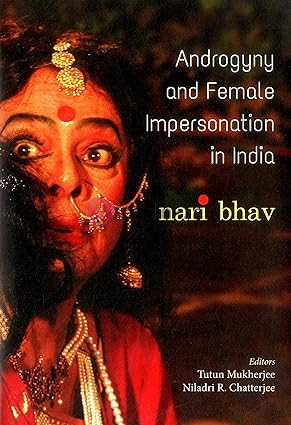Writer : No Name
Edited By : Niladri R. Chatterjee & Tutun Mukherjee
Compiled By : NA
Translated By : NA
Publishers : Niyogi Books India
- Shipping Time : 10 Days
- Policy : Return/Cancellation?
You can return physically damaged products or wrong items delivered within 24 hours with photo/video proof.
Contact Customer Support for return initiation and receive return authorization via email. Securely package for return.
Refunds for eligible returns are processed within 7-10 business days via Bank Transfer.
Order cancellation allowed within 24 hours of placing it. Standard policy not applicable for undamaged/wrong product cases. Detailed info. - Genre : Essays>Women & LGBTQ+ Related
- Publication Year : 2016
- ISBN No : 978-93-85285-46-2
- Binding : Card Board (Hard) with Gel Jacket
- Pages : 356
- Weight : 570 gms
- Height x Width x Depth : 8.5x5.5x0.5 Inch
If so, it will be notified
About the Book
Androgyny & Nari Bhav: The Art, Aesthetics, and Essence of Gender Fluidity in Indian Culture
"Within each soul, the masculine and the feminine entwine like threads of an eternal tapestry, weaving a harmony that transcends time and form."
In an era of evolving discourse on gender and identity, this exquisitely crafted volume embarks on a profound exploration of androgyny and ‘nari bhav’—the delicate, yet powerful sensibility of the feminine that surpasses anatomical constraints. Beyond the rigid definitions of the ‘third gender,’ it delves into the timeless Indian belief in fluidity, where the interplay of opposites—Shiva and Shakti, male and female, yin and yang—is celebrated as a force of balance and harmony.
Unfolding through the mesmerizing lens of literature, mythology, theatre, classical dance, and contemporary performance arts, this book reveals how gender fluidity has long been acknowledged and revered in Indian traditions. From the graceful impersonations of temple dancers and theatre performers to the symbolic embodiment of Ardhanariswara, it unravels the profound spiritual, artistic, and cultural dimensions of gender expression.
Rich with vivid storytelling, insightful analysis, and rare conversations with performers of the dying art of female impersonation, this book brings forth a luminous tribute to a vanishing legacy. A celebration of identity, expression, and aesthetic duality, this masterfully written volume inspires a more compassionate, inclusive, and enlightened perspective on gender, sexuality, and the human experience.
A must-read for scholars, artists, philosophers, and seekers of beauty, this book is an evocative journey into the depths of cultural wisdom, artistic transcendence, and the boundless spectrum of selfhood.


